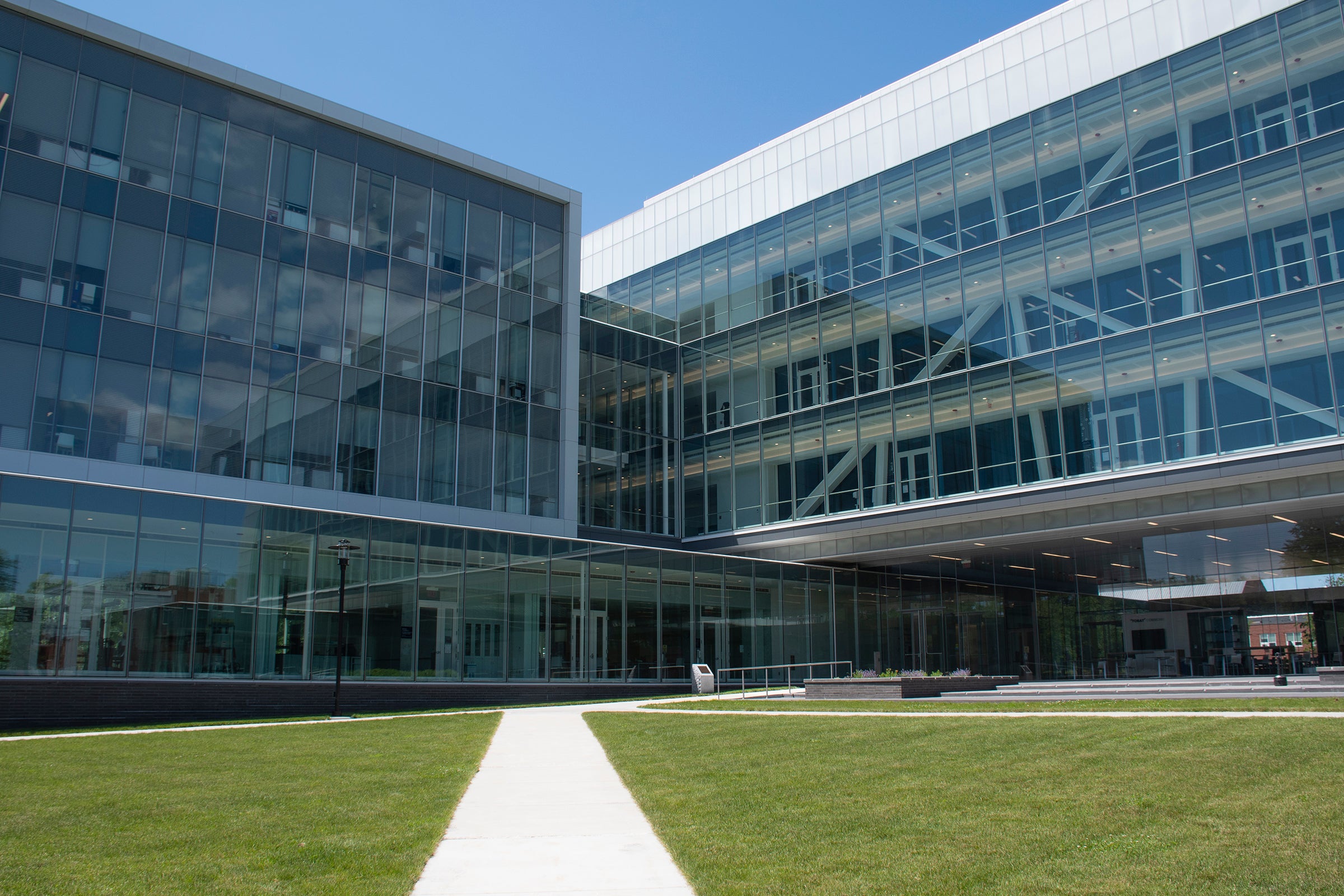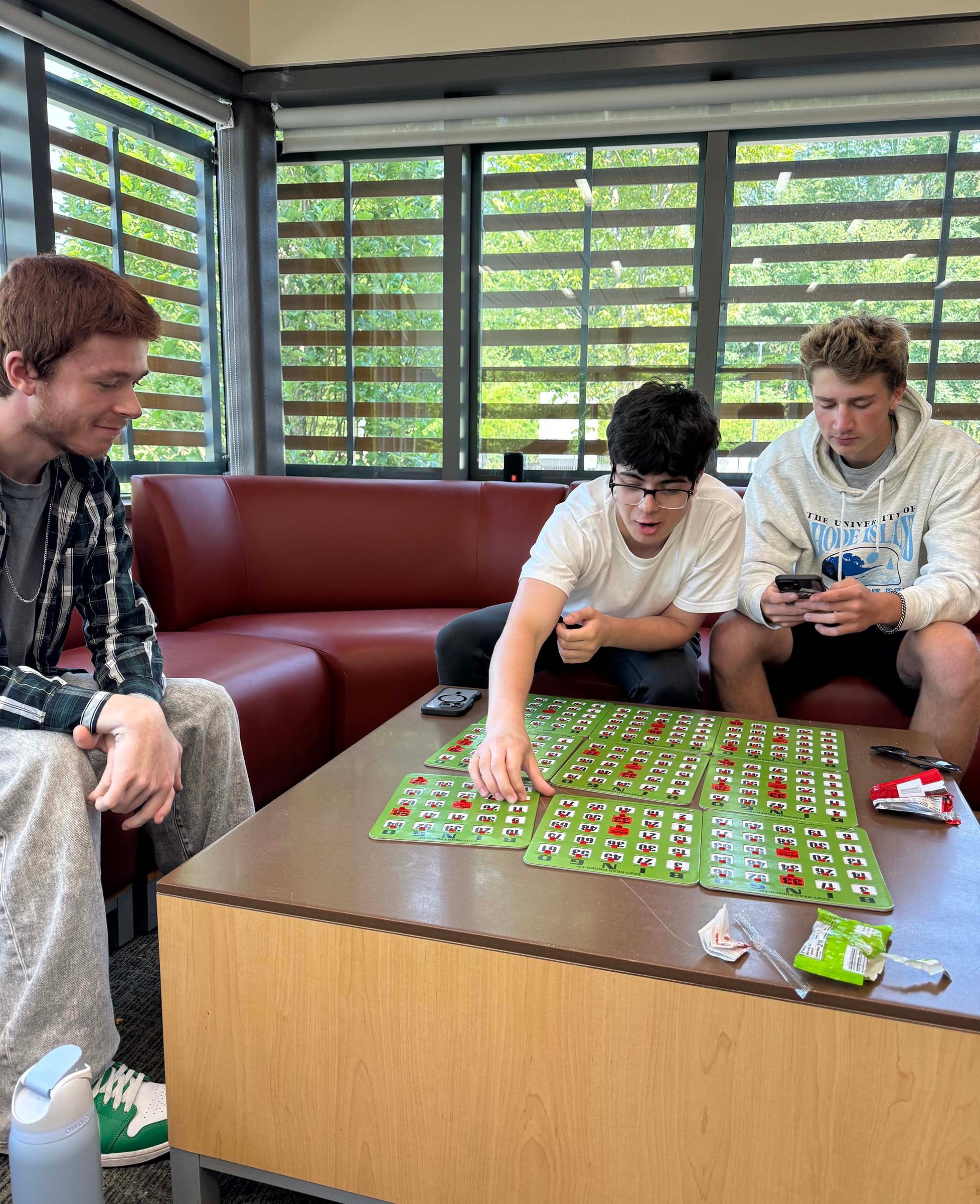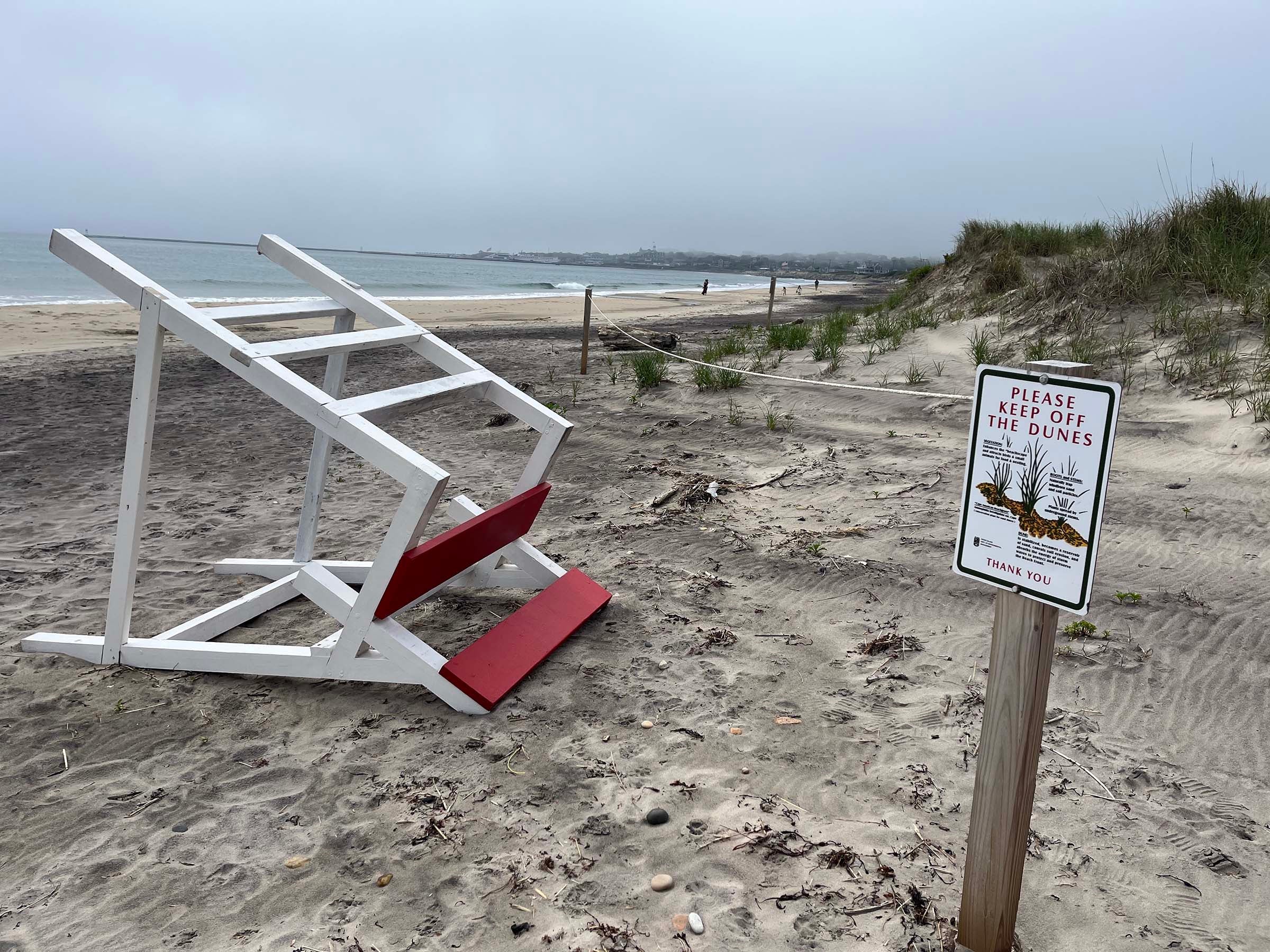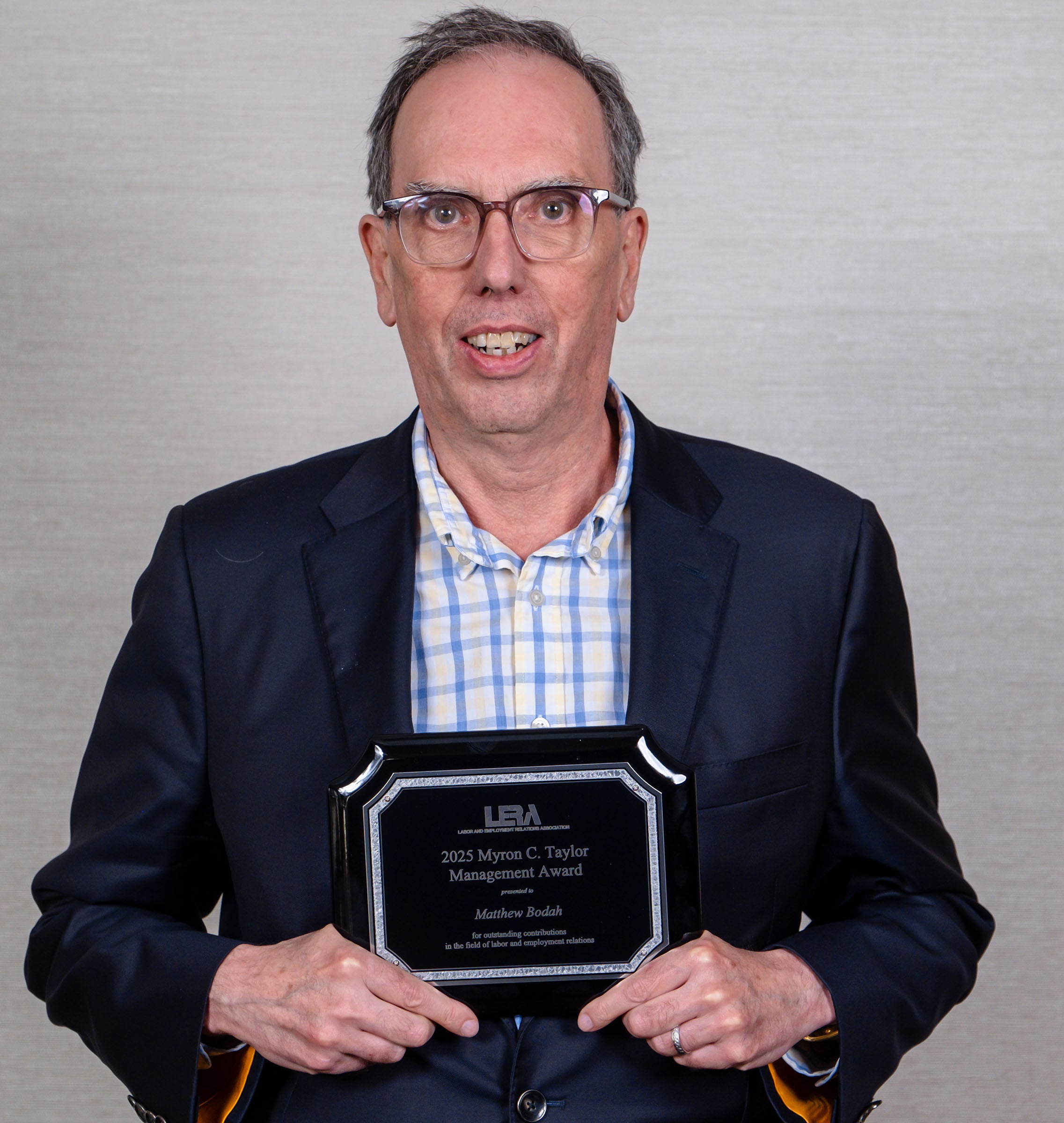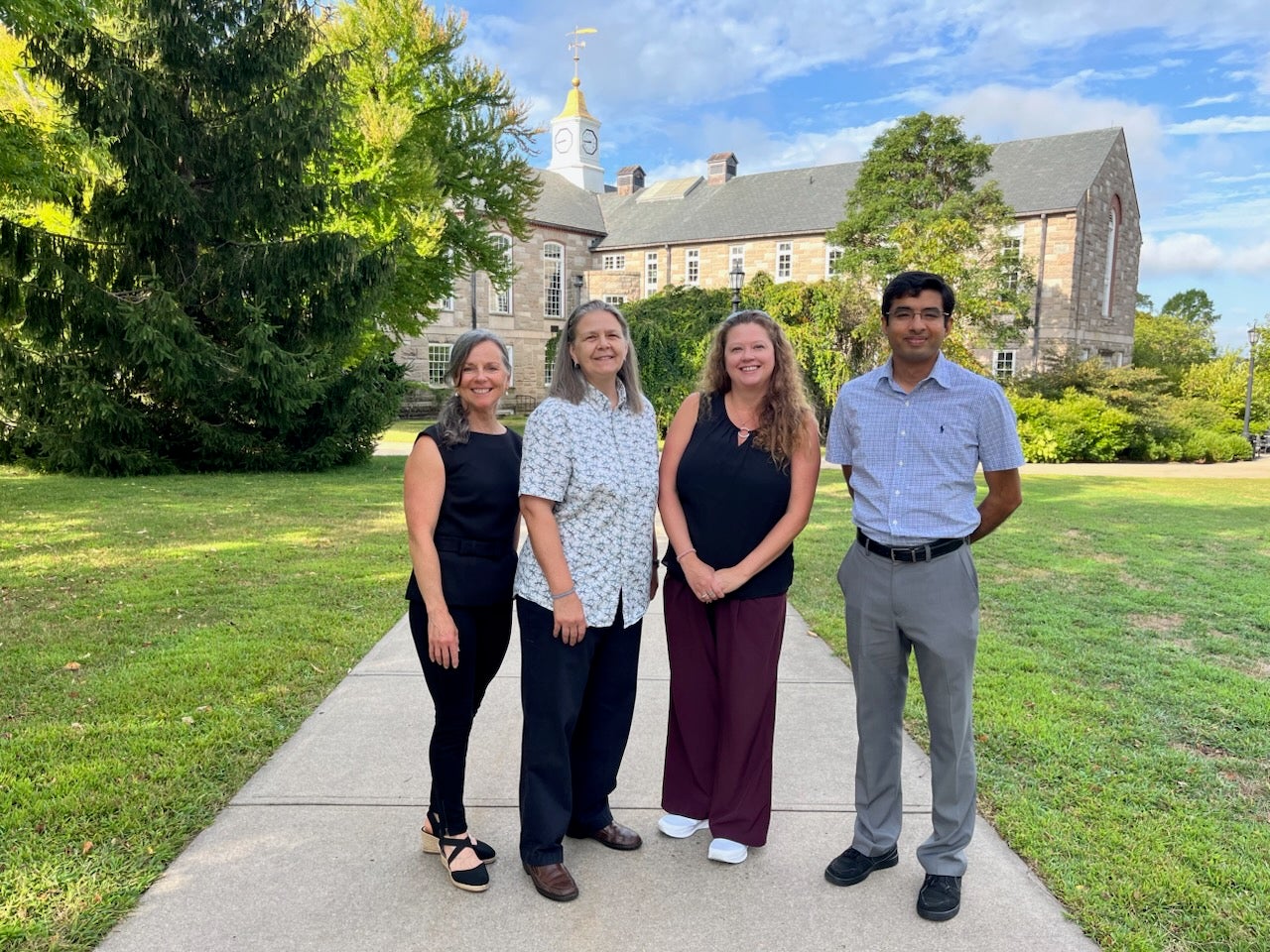URI set to host a two-day conference on neurodiversity with world-renowned author and autism advocate Temple Grandin
KINGSTON, R.I. – Aug. 19, 2025 – The University of Rhode Island will host the Northeast Regional Higher Education Neurodiversity Coalition Conference for the first time this summer. The conference will be held on Aug. 29 and 30 at URI’s Fascitelli Center for Advanced Engineering at 2 East Alumni Ave., on the Kingston Campus.
Among this year’s distinguished keynote speakers is Dr. Temple Grandin, an esteemed animal behavioral scientist, acclaimed author and a world-renowned advocate for those with autism spectrum disorders.
“Dr. Grandin’s early career success as an animal scientist was because she thought differently and saw things that others did not see,” says Anthony Marchese, the dean of the College of Engineering at URI.

Grandin has authored more than 400 scholarly articles, and two of her books, Animals in Translation and Animals Make Us Human, made the New York Times best seller list. In 2010 she was named one of Time magazine’s 100 most influential people. That same year her life was dramatized in an HBO biopic starring Claire Danes which garnered a Peabody Award and several Emmys.
Charles “Chuck” Watson, assistant dean for access, opportunity and success, has been spearheading efforts to bring the conference to Kingston.
“It’s great to have Temple Grandin come and speak to us about autism, neurodiversity, and overall mental health. It’s a great opportunity to have someone of her caliber also speak to the challenges that students deal with locally, and nationally on college campuses,” says Watson.
Along with serving as an advisor on the Northeast Regional Higher Education Neurodiversity Coalition, Watson is also part of the planning commission. He presented and moderated a panel during last year’s conference. The conference grew out of the Neurodiversity Initiative at Northeastern University’s College of Engineering.
He believes the timing is ideal given its focus on neurodiversity and mental health. It also happens to fall on the first two days of move-in weekend, when the university will welcome a new batch of students.
“Having someone like a Temple Grandin legitimizes what we’re trying to do as an organization and underscores the issues that neurodiverse people are dealing with and the resources needed to support them and ensure their success,” says Watson.
The two-day conference will feature panels exploring the influence of intersecting identities, the lived experience of neurodivergent students in academic settings, and the entrepreneurial journeys of neurodivergent individuals. These are in addition to a series of breakout sessions.
“While innovative thinkers have always had an outsized impact on society, our educational system often rewards conformity of thought,” says Marchese. “As educators, it’s our responsibility to make sure that nobody in the neurodiverse community gets left behind. Our future as a society will depend on organizations that embrace the diverse perspectives that are required to solve difficult problems.”
Paige Ramsdell, director of URI’s Office of Disability Access and Inclusion, and Nina Schiarizzi-Tobin, M.Ed., assistant director, are among the experts from URI who will present as part of the conference. Jamell Mitchell, who leads EY’s Global Neuro-Diverse Center of Excellence, and Tiffany Treacy, vice president of product at Microsoft, are also among the presenters and will discuss unlearning bias and neurodiversity in the workplace, respectively.
“Part of my goal for this conference is to let people know that there are companies that recognize the importance of neurodiversity,” says Watson.
The Northeast Regional Higher Education Neurodiversity Coalition is a collaborative initiative involving URI and its partnering institutions, the University of Connecticut, Northeastern University, and the University of New Hampshire.
“Northeastern University has kept experiential learning at its core since its inception in 1898. The Engineering Neurodiversity Initiative at Northeastern University guides and drives us to support all of our human capital to their full potential, which aims to address the ‘missing millions’ from our national talent pool and workforce,” says Richard Harris, associate dean of outreach, engagement and belonging at Northeastern University.
“By understanding how people think and learn differently, we can create environments that enable all individuals to reach their full potential in higher education and the workplace,” says Erik Brenner, director of the belonging initiative at Northeastern University.
Watson emphasizes the importance of such coalitions and the critical nature of convening conferences like these. He hopes the conference continues on an annual basis and attracts more universities to become involved.
He asserts that receiving a neurodiverse diagnosis can represent a pivotal turning point.
“We need to have other conferences like this to educate people that being diagnosed as neurodiverse is not the end all, but instead can be a fresh beginning,” says Watson.
The conference is open to the URI community and the public with on-site registration. Advance registration for Grandin’s keynote discussion is also available. Visit the conference website for a full schedule.
Latest All News
- Zada: The Legend of the FalconsZada: The Legend of the Falcons Christa Mandler ’07, M.S. ’09 (2024)
- URI pilot math program produces positive resultsKINGSTON, R.I. – Sept. 5, 2025 – A two-week pilot program designed by the URI Math Department to improve the math skills of incoming freshmen at the University of Rhode Island has produced impressive results. The “Level Up!” program, held on the Kingston Campus from July 27 to Aug. 8, was free for participants. By […]
- Block Island and University of Rhode Island partner to strengthen coastal resilienceKINGSTON, R.I. – Sept. 5, 2025 – The University of Rhode Island Coastal Institute has officially designated Block Island as its newest Climate Response Demonstration Site (CRDS), formalizing a partnership to protect the island’s natural systems, infrastructure, and freshwater resources. The New Shoreham Town Council voted unanimously in support of the designation on July 7, […]
- URI Vice Provost Matthew Bodah awarded for his work in the field of labor and employee relationsKINGSTON, R.I. – Sept. 4, 2025 – Negotiations come in many shapes and sizes—from small decisions like picking a restaurant, to more significant issues like debating salary—but a common thread in many is that they can be drawn out and complex. This is especially true in labor negotiations—one side proposes, the other counters until an […]
- URI Humanities series takes serious look at pop cultureKINGSTON, R.I. – Sept. 4, 2025 – From a marching band to Shakespeare–and Taylor Swift in between–the University of Rhode Island’s Center for the Humanities will take an academic view of pop culture with its annual lecture series this school year. But academic doesn’t mean not fun. “The Humanities and Popular Culture/Counterculture,” which opens this […]
- URI receives first-ever NIH T32 award to launch transdisciplinary biomedical research training programKINGSTON, R.I. – Sept. 3, 2025 – The University of Rhode Island has received its first-ever National Institutes of Health (NIH) T32 Predoctoral Training Grant, marking a major milestone in URI’s growth as a research institution. Funded by the National Institute of General Medical Sciences, this prestigious grant supports the new T32 Transdisciplinary Training in […]



